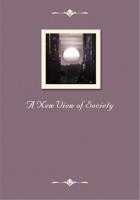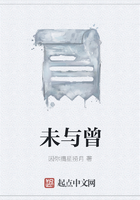Adam Schall
Since the time of Matteo Ricci, many Jesuits stayed in Beijing. They were all well educated and specialized in certain areas of Western science, knowledge that could be utilized and employed by the Emperor. Some of them earned imperial trust and were made officials of the Imperial Court. After the Qing Dynasty was established, the Jesuits continued to be highly regarded by the Emperors. The well-known ones among them were Adam Schall SJ (1591-1666) and Ferdinandus Verbiest SJ (1623-1688)?
The tradition to utilize the missionaries‘ scientific knowl- edge can trace back to Xu Guangqi. In 1629, Emperor Chongzhen decided to create a department to revise the old calendar. Xu Guangqi was the head of the department and Li Zhicao was his assistant. The greatest work that this department had done was to finish the Chongzhen Calendar of 137 volumes. These vol- umes that explained systematically Western astrological theo-ries were presented five times to the Emperor between 1631-1634. Xu Guangqi invited many missionaries who had acquired certain expertise in science to work for him, such as Adam Schall, Johan Terrentius and Giacomo Rho, especially Terrentius, a Ger- man, who was a scientist in the Papal Science Institute. In Eu- rope, he was famous for his rich knowledge in medicine, phi- losophy and mathematics. When he came to China, he brought with him the works of Nicolai Copernicus‘ Heliocentric System, Johannes Kepler"s Outline of Copernicus’ Astronomy, as well as the work of Galileo and others. He went to work with Xu in1629. Within six months, he wrote Ce Tian Yue Shou in two volumes; Da Ce in two volumes and Li Shu Zong Mulu. He edited many other scientific works and directed the building of two instruments called Qi Zhen Xiang Xian. Because of a heavy workload, he died two years later at age of 55. Xu Guangqi highly credited the missionaries in his report to the Emperor: "They wrote and translated books and made all kinds of tabulations, and they built scientific instruments. They did not have time to eat and no time to sleep. They were like the stars moving all the time. They had also to teach other people in the department. The heavy load almost made them become bald and their words nearly burnedtheir lips. They deserve to be acknowledged.
In the second year of Emperor Shun Zhi, the government discovered that the Solar Eclipse did not occur according to the existing calendar. As a result, Adam Schall was named as the imperial Jianzheng to revise the calendar. In the following year, the newly edited Xi Yang Xing Fa Li Shu was submitted to the Emperor. It had 103 volumes and was based on Chongzhen Li Shu. The Emperor was delighted in Schall and even promoted him three times in one day. He was promoted from "Tong Yi Da Fu‘ to "Tai Pu Ci Qing’ to "Tai Chang Ci Qing‘? Simply put, Schall"s position jumped from "Wu Pin’ to Yi Pin‘? The Emperor himself even called Schall as"Mafa‘, meaning Mas- ter in Manchurian. The Emperor often went to Schall"s residence to talk about astronomy and imperial politics. Meanwhile, Schall could come to visit the Emperor without the usual complicated ritu- als of kneeling andkowtow required for all other officials.
In 1650, Adam Schall built a new European style church at the place where Ricci had built the first one, which is known as Nan Tang. In 1652, Emperor Shun Zhi granted a framed"Qing Chong Tian Dao‘ (to adore the Heavenly Principle) to hang above the altar. This brought great honor to the Catholic Church. A year later, he honored Schall with the title of "Tong Xuan Jiao Shi’ for his tremen-dous work on revising the cal-endar. In 1654, the Emperorgave a piece of land outside of Fu Cheng Men as Ricci"s grave- yard. In 1657, the Emperor in his Yu Zhi Tian Zhu Tang Bei Ji praised Schall with the words "Ren Shi You Nian, Yi Qing Jue Zhi‘, which means he devoted himself to his work for numerous years. The Emperor understood Schall"s Catholic Faith: "After spending many years in China, Adam Schall could still be faith- ful to his Faith and worshiping his God,……’ The Emperor thoughtthat was the reason why Schall could faithfully serve the Em- peror and yet fulfill his own duties.















